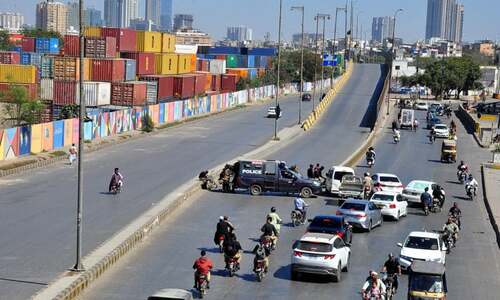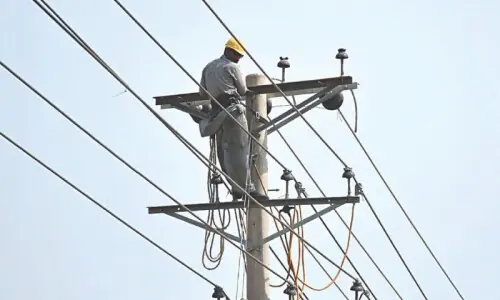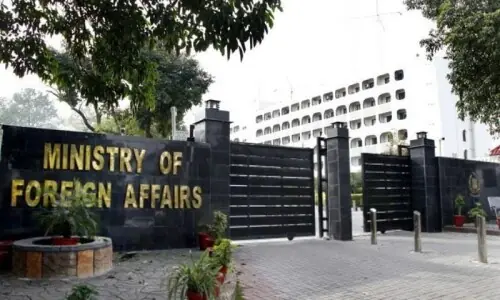KARACHI: Wearing a Jinnah cap over a kurta-shalwar, a cloth bag hanging from a shoulder and holding a walking stick he switched from one hand to the other as he moved in the lanes of the cantonment-administered locality where I live. Nagriwala Baba, the old man with white flowing beard had commonly come to be known, chanted a Naat with the word Nagri in its refrain. Hence the name. Most residents, probably attracted by his resounding voice, would be at their doorsteps with alms before he actually knocked at the door.
“Aaya beiti”, “Aaya bhai …”, he would punctuate his humming while striding from one door to another, collecting small amounts of money and blessing the giver. He had endeared himself to the residents so much that youngsters enjoyed exchanging banters with him.
“Baba, you must be collecting Rs10,000 a day, don’t you?” remarked a young man once. “Oh, no, no, you devil. You must be kidding.”
Baba, whom the residents had known for over a decade, did not turn up for several Thursdays, the day he chose to collect alms from residents though he could be seen in the marketplace on other days too. People missed him for a while but gradually forgot him believing the old man might have fallen ill or worse. Recently he was spotted by this writer at a market in the Defence Housing Authority. “Oh, you’ve got a promotion?” I exclaimed and Baba warmly smiled back at me, through the partly missing teeth, waving his hand holding the stick. Such amiable characters can be found in almost every locality in Karachi.
Throughout the year, there is no shortage of street beggars in the city plagued by shortages of water, electricity and gas. But with the arrival of Ramazan beggars seem to descend on the city like owls in the book Harry Potter and the Sorcerer’s Stone.
They are almost everywhere. Knocking and shouting at the doors, on roadsides and at traffic signals, near health facilities, in shopping malls, and most prominently in front of mosques around prayer times. Women holding suckling children, some treating the kids indifferently, evincing that they might not be their own blood. Some of the infants are so sleepy that it is easy to believe that they are drugged. Some of the mendicants have deformities, others feign so, some young sturdy men are audacious enough not to pretend any excuse and just demand money. They move in groups as well as individually, pestering and badgering their targets for money. While shopping you might be accosted one of them, usually by women who know how not to let get you away by paying them a few rupees. “I have to buy milk for the baby”, one would say meaning she cannot buy it for a tenner or a 20-rupee note. And there is this man, who looks scornfully at what you have paid him and would say: “Hey sir, I have to buy clothes for my children.” “I have to pay the rent of my house.”
There are people who beg for their mothers “lying in a hospital in critical condition” and invite their audience to visit the hospital if they did not believe them. There are those whose grown-up daughters are unable to be married off for want of a dowery.
In subcontinental movies we see some villain or a comic character collects donations to bury or cremate his ‘dead’ loved one.
There are compulsive beggars. There are those who have made big fortunes. Indeed a different version of Alif Laila can be written as there are 1001 equally interesting stories about beggars.
There are, no doubt, those who are really needy and are compelled by circumstances to beg. They deserve all help.
Who to believe and who not to believe and who is deserving and who is not is a hard question to answer. Some people are averse to obliging individuals seeking alms and instead pay, on religious or humanitarian grounds, to institutions they think are doing a real charitable job. That’s why a good number of charity institutions are busy serving humanity appreciably.
The Sindh government plans to carry a survey after Eid on beggars across the province to pick out genuinely deserving persons to help them and expose the gangs running the nefarious begging racket in the name of the poor.
Published in Dawn, June 26th, 2017


































